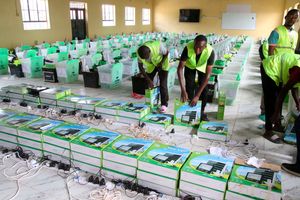Premium
Chasm between the toiling masses and savvy operators of the offshore universe

President Uhuru Kenyatta is among prominent leaders mentioned in the Pandora Papers. The secret assets were uncovered by an investigation by the International Consortium of investigative Journalists
What you need to know:
- Public officials regularly implicated in conspiracies to spirit away public funds into these black holes are rarely called to account.
- In the rare cases when they are, desultory courtroom pantomimes and outright travesties are the order of the day.
The Office of the Director of Public Prosecutions is dissatisfied with a recent court decision rejecting prosecution evidence obtained from Switzerland through the Mutual Legal Assistance arrangement. ODPP announced on Wednesday it will therefore appeal it. This means that trial will pause as the appeal is canvassed, and we must wait that much longer before Kenya takes the next ginger step towards accountability for another of Kenya’s fiscal outrages.
It so happened that the latest Anglo Leasing complication arose when the country was in a ferment over the Pandora Papers, whose key revelation was the diabolically complicated mechanics of causing colossal amounts of money to disappear without a trace, yet be securely available for its beneficiaries to live their best lives.
Anglo Leasing was a more audacious version of our ‘air supply’ contracts.
Firms incorporated in offshore secrecy jurisdictions and tax havens were contracted by a broke government to supply certain goods and services.
Because there was no money, these entities purported to ‘lend’ the government the value of the contracted goods and services, subject to the condition that government would commence paying interest on the ‘debt’ right away.
Nothing was delivered, yet the government was now indebted to entities that held irrevocable instruments that were not only successfully enforced against Kenya, but also impregnable in court when the government belatedly came to its senses and challenged it.
In fact, government had to prioritise and expedite payment in order to maintain a favourable sovereign rating and thus be eligible to access the Euro Bond markets.
These offshore rackets are quite nifty.
Financial scandals
Firms domiciled there are able to hide themselves, yet their claims – however implausible and irregular – are enforced with uncommon efficiency.
All the financial scandals that have crippled our economy involve an offshore dimension.
In many instances, public funds leave the exchequer directly for numbered accounts held by shell companies owned by foundations, fronted by faceless nominees.
There was a time when a kickback scandal hit a vehicle dealership which used to supply government.
Investigations found that directors of the firms were savvy operators of the offshore universe, whence they coordinated the payment of bribes to public officials, and evaded taxes on their incomes.
The Goldenberg scandal similarly featured the offshore dimension.
Money paid by government for fictitious gold and diamond exports then bounced about the globe in electronic streams between phantom-like entities based in offshore secrecy jurisdictions.
The Nakumatt-Charterhouse Bank scandal likewise acquired dizzying fraudulent complexity when the offshore facet came into play. Two formidable power men of the Kanu era are in the 10th year of legal efforts to defeat extradition to Jersey, an iconic offshore jurisdiction where they are awaited to stand trial for the embezzlement of hundreds of millions of shillings from Kenya Power and Lighting Company into bank accounts held through entities typical of such undertakings.
Public officials regularly implicated in conspiracies to spirit away public funds into these black holes are rarely called to account.
Grinds the poor underfoot
In the rare cases when they are, desultory courtroom pantomimes and outright travesties are the order of the day.
In a country where the millions struggle painfully to keep death at bay on a daily basis, civil servants reward themselves most generously from the public purse, surpassing the incomes of the most prodigious merchants and industrialists.
Thereafter, they enjoy lavish retirements, thanks to enormous pensions wending their way out of the labyrinths of offshore warrens where the loot is sequestered.
The majority, who barely subsist, bear the brunt of unforgiving government machinery, which haunts them with vicious crackdowns to enforce innumerable, onerous strictures. They are pursued viciously and brutal sanctions inflicted violently, reminding them, over and over, that they remain unseen and unfree in their own country.
It is hard to accept that this implacable system, which grinds the poor underfoot, also permits the VIP class to have its way without so much as a whimper of disapproval.
How different sets of Kenyans fare under our institutions depicts the graphic anatomy of a broken promise.
Chaper 6 – which bars state officers from operating bank accounts outside of the country – and Article 10 of the Constitution, sum up our efforts to redeem the promise of uhuru. It is designed to afford all Kenyans the best expression of citizenship and restore a people long consigned to a subordinate, invisible fate under the unjust, oppressive and corrupt travails of colonialism, into security, dignity and prosperity under affirmative sovereign institutions.
What we have is a disconcerting order in which one category of Kenyans put their lives on the line daily to just stave off death, while another steal their resources and secretes them abroad for exclusive private enjoyment. The coloniality of this framework is outrageous. The Pandora Papers is a timely reminder of what our constitutional project was all about. We must resume the struggle to decolonise our institutions.
The writer is an advocate of the High Court and a former State House speech writer. @EricNgeno





